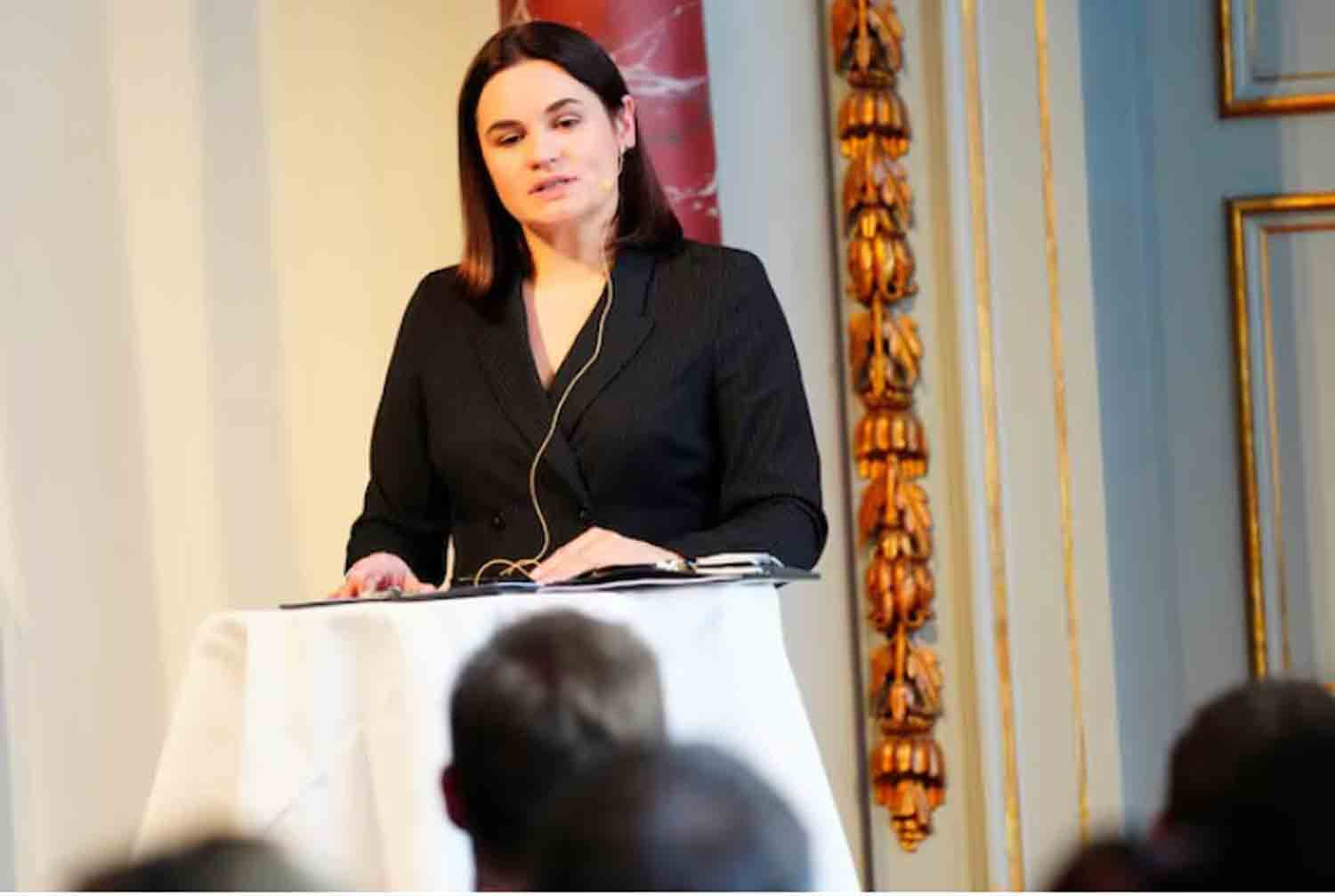NATO allies should not be discouraged from increasing military support to Ukraine due to Vladimir Putin‘s “irresponsible nuclear rhetoric,” stated outgoing NATO Secretary General Jens Stoltenberg in an interview with Reuters on Monday.
Stoltenberg’s comments followed Putin’s recent assertion that Russia might resort to nuclear weapons if faced with conventional missile strikes, and that any attack on Russia backed by a nuclear power would be viewed as a collective assault.
This warning from Putin coincides with discussions among the United States and its allies regarding the possibility of allowing Ukraine to launch conventional Western missiles into Russian territory. Ukraine has expressed a desire for authorization to target elements of Russia’s military operations.
Stoltenberg remarked, “What we have observed is a consistent pattern of reckless Russian nuclear rhetoric and messaging, and this aligns with that trend.” He is set to pass the NATO leadership to former Dutch Prime Minister Mark Rutte on Tuesday after a decade in his role.
no options without risk
NATO Secretary General Jens Stoltenberg stated, “Each time we have enhanced our support with new weaponry—be it battle tanks, long-range artillery, or F-16s—the Russians have attempted to thwart our efforts,” during an interview with Reuters at NATO’s headquarters near Brussels. He emphasized that these attempts have not been successful and that the latest developments should not deter NATO allies from continuing their support for Ukraine.
Stoltenberg noted that NATO has not observed any alterations in Russia’s nuclear stance that would necessitate a response from the alliance. As a former prime minister of Norway, he highlighted that the most significant threat to NATO would arise if President Putin were to achieve victory in Ukraine. “Such an outcome would signal that military aggression and threats against NATO allies yield results, ultimately making us all more vulnerable,” he remarked.
He also pointed out, “In warfare, there are no options without risk.” Meanwhile, the U.S. administration has shown hesitance in granting Ukraine the authority to launch strikes deep within Russian territory using long-range ATACMS missiles, citing concerns over escalating tensions with Moscow and the possibility of retaliation.
Some Western officials have raised doubts about the potential effectiveness of such strikes in altering the dynamics of the conflict. Stoltenberg remarked that there is “no silver bullet” capable of transforming the situation on the battlefield. However, he noted that significant strikes within Russia could contribute positively to the overall Western initiative aimed at assisting Ukraine in resisting Russia’s invasion.
He further emphasized that any negotiated resolution to the conflict must include security assurances for Ukraine from Western nations, particularly the United States. Without these guarantees, he warned, Russia would likely disregard any agreed-upon boundaries.
“When a line is established—whether it be the internationally recognized border or another ceasefire line—we must ensure that the conflict concludes there,” he stated. He pointed out that Russia has a history of attacking, pausing, and then resuming hostilities, referencing past agreements intended to resolve the ongoing conflict that began in 2014.
“I don’t believe we can alter President Putin’s perspective on Ukraine, but we can influence his decision-making by making it clear that the costs of continuing the war are so substantial that it would be more advantageous for him to recognize Ukraine as a sovereign and independent state.”
Discover more from Defence Talks | Defense News Hub, Military Updates, Security Insights
Subscribe to get the latest posts sent to your email.





